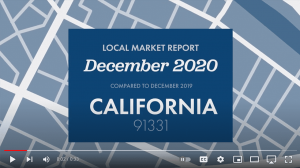Digital marketing, including the real estate industry, has become integral to the business. It provides many opportunities to attract potential clients and increase sales. By implementing digital marketing strategies, real estate businesses can reach their target audience more effectively and efficiently. This article outlines the role of digital marketing in business growth and the different strategies that can be used to boost sales for real estate businesses.
How Can Digital Marketing Help Your Business?
Digital marketing is a powerful tool to help businesses grow and reach their potential audience. It offers various benefits, such as cost-effectiveness, better targeting, and increased engagement. In today’s digital age, people spend more time online, making it essential for businesses to have a strong digital presence.
Digital marketing can help real estate businesses build their brand and increase visibility. It provides an effective way to reach potential clients and promote their properties. Using digital marketing strategies, real estate businesses can enhance their reputation and differentiate themselves from competitors.
Digital marketing also provides businesses with valuable data and insights that can be used to optimize their marketing campaigns. With the help of analytics tools, businesses can track their marketing performance and make data-driven decisions to improve their marketing strategies.
Real Estate Marketing Strategies
Real estate businesses can use various digital marketing strategies to boost their sales. These strategies include:
-
Develop a Digital Strategy
Developing a digital strategy involves defining your business goals, identifying your target audience, and determining the digital channels that will be most effective in reaching and engaging them. This strategy should align with your overall business plan and consider the strengths and weaknesses of your current digital presence. It should also include a plan for measuring and analyzing the success of your digital efforts.
-
Invest in a User-friendly Website
Investing in a user-friendly website is essential for any business looking to digitize. Your website should be easy to navigate, visually appealing, and provide visitors with clear and concise information about your products or services. It should also be optimized for mobile devices and have a fast loading speed.
-
Do Virtual Tours
Virtual tours are becoming popular in the digital age. They allow businesses to showcase their products or services more interactively and engagingly, which can help increase customer engagement and sales. Virtual tours can be created using various digital tools, including 360-degree cameras and virtual reality technology. They can be used to showcase a physical location, such as a store or showroom, or to provide a virtual demonstration of a product or service. Virtual tours can also be shared on social media or embedded on a website, making them accessible to a wider audience.
-
Leverage Social Media
Social media has become essential for businesses looking to increase their online presence and connect with customers. It allows businesses to engage with customers in real-time, share updates about products or services, and build brand awareness. Social media platforms such as Facebook, Instagram, Twitter, and LinkedIn offer a range of features that businesses can use to promote their brand, including paid advertising, influencer marketing, and content creation. By leveraging social media, businesses can reach a wider audience, build a loyal following, and increase sales. It is important to have a clear social media strategy and regularly monitor and analyze social media metrics to optimize results.
Conclusion
These lists are just the tip of the iceberg regarding digital marketing strategies. It’s important for businesses to continually evaluate their digital marketing efforts and adapt to new trends and technologies. By implementing a well-rounded digital marketing strategy, businesses can increase online visibility, engage with customers, and drive sales. Whether through search engine optimization, email marketing, or social media, there are endless opportunities to connect with customers and grow your business in the digital age.
Do you want to know how automated social media posts work? Zentap’s automated posting solutions will help you stay consistent and relevant on all your social media channels. Contact us now to learn more and take the first step toward a stress-free social media strategy.

 Login
Login









